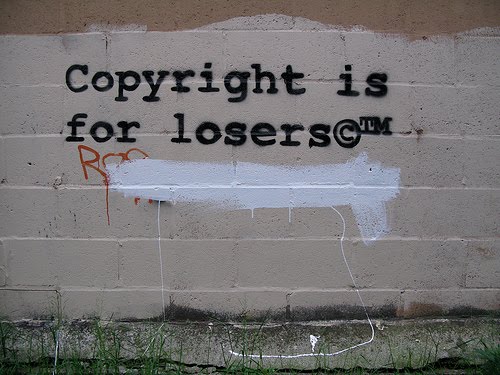«Το δημόσιο δεν έχει χρήματα για ακριβά φάρμακα ή τα φάρμακα είναι ακριβά;»
Από τον Νίκο Μπόζοβιτς
Μέρες τώρα τα κόμματα αναζητούν τις ευθύνες για το ότι οι βαρέα πάσχοντες δεν έχουν πρόσβαση στα ακριβά φάρμακα που χρειάζονται. Κατηγορούνται πολιτικές κυβερνήσεων, συνδικαλιστικοί φορείς, υπουργοί και φυσικά το μνημόνιο για το γεγονός ότι το δημόσιο δεν αγοράζει αυτά τα φάρμακα για όσους τα έχουν ανάγκη.
Όμως παραδόξως κανείς δεν αναλογίζεται γιατί τα φάρμακα έχουν αυτές τις τιμές;
Γιατί ο ασθενής πρέπει να πληρώνει τόσο ακριβά φάρμακα ώστε να του είναι αδύνατο να ακολουθήσει μια θεραπεία αν δεν υπάρχει και η συμβολή του κράτους;
Ο τρόπος προστασίας της πνευματικής ιδιοκτησίας των εταιριών φαρμάκων μέσω των πατεντών δημιουργεί τεχνητά μονοπώλια που συγκρούονται με το ανθρώπινο δικαίωμα στην υγεία. Μεγάλο μέρος της τιμής ενός φαρμάκου δεν αφορά το κόστος παραγωγής του, ούτε και το κόστος της έρευνας. Αφορά την προσδοκία κερδών των φαρμακοβιομηχανιών από τον ασθενή σε καθεστώς μονοπωλίου. Οι ασθενείς (και οι κρατικοί φορείς υγείας) δεν έχουν άλλη επιλογή από την αγορά του φάρμακου σε οποιαδήποτε τιμή κρίνει ο πωλητής του.
Τα ιδιωτικά μονοπώλια δεν υπηρετούν την κοινωνία είτε από σοσιαλιστική είτε από φιλελεύθερη οικονομική ανάλυση.
Γίνεται φανερή λοιπόν η ανάγκη να αλλάξει το καθεστώς των πατεντών στα φάρμακα, πράγμα που είναι και ένα πάγιο αίτημα του Κόμματος Πειρατών Ελλάδας. Επειδή όμως το σύστημα των πατεντών βασίζεται σε διεθνείς συμφωνίες που η μεταβολή τους χρειάζεται χρόνο πρέπει να βρεθεί άμεσα λύση. Και η λύση υπάρχει με την χρήση των δυνατοτήτων που οι διεθνείς συνθήκες δίνουν. Υπάρχει η δυνατότητα επιβολής στον κάτοχο μιας πατέντας, αναγκαστικής αδειοδότησης (compulsory licensing). Πρόκειται για την υποχρεωτική παραχώρηση του δικαιώματος παραγωγής του φαρμάκου σε ανταγωνιστές, στην περίπτωση κατάχρησης του δικαιώματος ευρεσιτεχνίας, έναντι ορισμένου, από το κράτος, τιμήματος. [Συμφωνία TRIPS, άρθρα 30 και 31 *δες παραπομπή (1)].
Με την κατάλληλη πολιτική βούληση μπορεί το Ελληνικό Δημόσιο να διατάξει μια φαρμακευτική εταιρία, να παραχωρήσει το δικαίωμα χρήσης της πνευματικής της ιδιοκτησίας, αν αποδειχθεί ότι αυτή καταχράται το μονοπωλιακό δικαίωμα που της έχει παραχωρηθεί. Και δεν είναι δύσκολο να αποδειχθεί αυτό. Η Ελλάδα σήμερα είναι μια χώρα που και οι πολίτες και το κράτος δεν έχουν την δυνατότητα να αγοράσουν τα φάρμακα στις τιμές που αξιώνει η βιομηχανία των φάρμακων. Η χρήση του μονοπωλιακού δικαιώματος εμποδίζει την πρόσβαση των ανθρώπων στην υγεία.
Προτείνουμε την υποχρεωτική παραχώρηση αδειών των ακριβών φάρμακων σε μειοδότες παρασκευαστές με αυστηρές διαδικασίες επιλογής που μπορούν να βεβαιώσουν την ορθή παρασκευή τους και να τους δεσμεύουν σε διαρκή έλεγχο. Έτσι μπορεί να επιτευχθεί δραστική μείωση της τιμής των ακριβών φάρμακων για όλους (διεθνή παραδείγματα έχουν πετύχει μειώσεις 97%), σε μικρό χρονικό διάστημα. Αυτό μπορεί να συμβεί εκμεταλλευόμενοι τις αδυναμίες του υπάρχοντος διεθνούς συστήματος προστασίας πνευματικών δικαιωμάτων [ Hack the system 🙂 ], δίνοντας έτσι την δυνατότητα στο ελληνικό δημόσιο να διασφαλίσει την πρόσβαση στην υγεία σε όλους, ανοίγοντας την συζήτηση για τα κοινωνικά οφέλη της ριζικής μεταρρύθμισης ή αντικατάστασης από πιο λογικές ρυθμίσεις του υπάρχοντος συστήματος των πατεντών.
Παραπομπές:
- Συμφωνία TRIPS, άρθρα 30 και 31
http://www.wto.org/english/tratop_e/trips_e/t_agm0_e.htm
Article 30
Exceptions to Rights Conferred
Members may provide limited exceptions to the exclusive rights conferred by a patent, provided that such exceptions do not unreasonably conflict with a normal exploitation of the patent and do not unreasonably prejudice the legitimate interests of the patent owner, taking account of the legitimate interests of third parties.
Article 31
Other Use Without Authorization of the Right Holder
Where the law of a Member allows for other use (7) of the subject matter of a patent without the authorization of the right holder, including use by the government or third parties authorized by the government, the following provisions shall be respected:
(a) authorization of such use shall be considered on its individual merits;
(b) such use may only be permitted if, prior to such use, the proposed user has made efforts to obtain authorization from the right holder on reasonable commercial terms and conditions and that such efforts have not been successful within a reasonable period of time. This requirement may be waived by a Member in the case of a national emergency or other circumstances of extreme urgency or in cases of public non-commercial use. In situations of national emergency or other circumstances of extreme urgency, the right holder shall, nevertheless, be notified as soon as reasonably practicable. In the case of public non-commercial use, where the government or contractor, without making a patent search, knows or has demonstrable grounds to know that a valid patent is or will be used by or for the government, the right holder shall be informed promptly;
(c) the scope and duration of such use shall be limited to the purpose for which it was authorized, and in the case of semi-conductor technology shall only be for public non-commercial use or to remedy a practice determined after judicial or administrative process to be anti-competitive;
(d) such use shall be non-exclusive;
(e) such use shall be non-assignable, except with that part of the enterprise or goodwill which enjoys such use;
(f) any such use shall be authorized predominantly for the supply of the domestic market of the Member authorizing such use;
(g) authorization for such use shall be liable, subject to adequate protection of the legitimate interests of the persons so authorized, to be terminated if and when the circumstances which led to it cease to exist and are unlikely to recur. The competent authority shall have the authority to review, upon motivated request, the continued existence of these circumstances;
(h) the right holder shall be paid adequate remuneration in the circumstances of each case, taking into account the economic value of the authorization;
(i) the legal validity of any decision relating to the authorization of such use shall be subject to judicial review or other independent review by a distinct higher authority in that Member;
(j) any decision relating to the remuneration provided in respect of such use shall be subject to judicial review or other independent review by a distinct higher authority in that Member;
(k) Members are not obliged to apply the conditions set forth in subparagraphs (b) and (f) where such use is permitted to remedy a practice determined after judicial or administrative process to be anti-competitive. The need to correct anti-competitive practices may be taken into account in determining the amount of remuneration in such cases. Competent authorities shall have the authority to refuse termination of authorization if and when the conditions which led to such authorization are likely to recur;
(l) where such use is authorized to permit the exploitation of a patent (“the second patent”) which cannot be exploited without infringing another patent (“the first patent”), the following additional conditions shall apply:
(i) the invention claimed in the second patent shall involve an important technical advance of considerable economic significance in relation to the invention claimed in the first patent;
(ii) the owner of the first patent shall be entitled to a cross-licence on reasonable terms to use the invention claimed in the second patent; and
(iii) the use authorized in respect of the first patent shall be non-assignable except with the assignment of the second patent.




